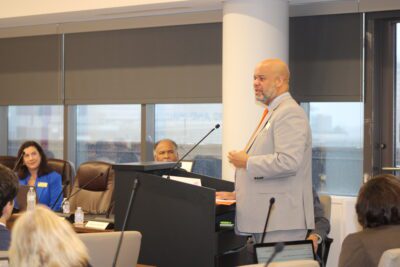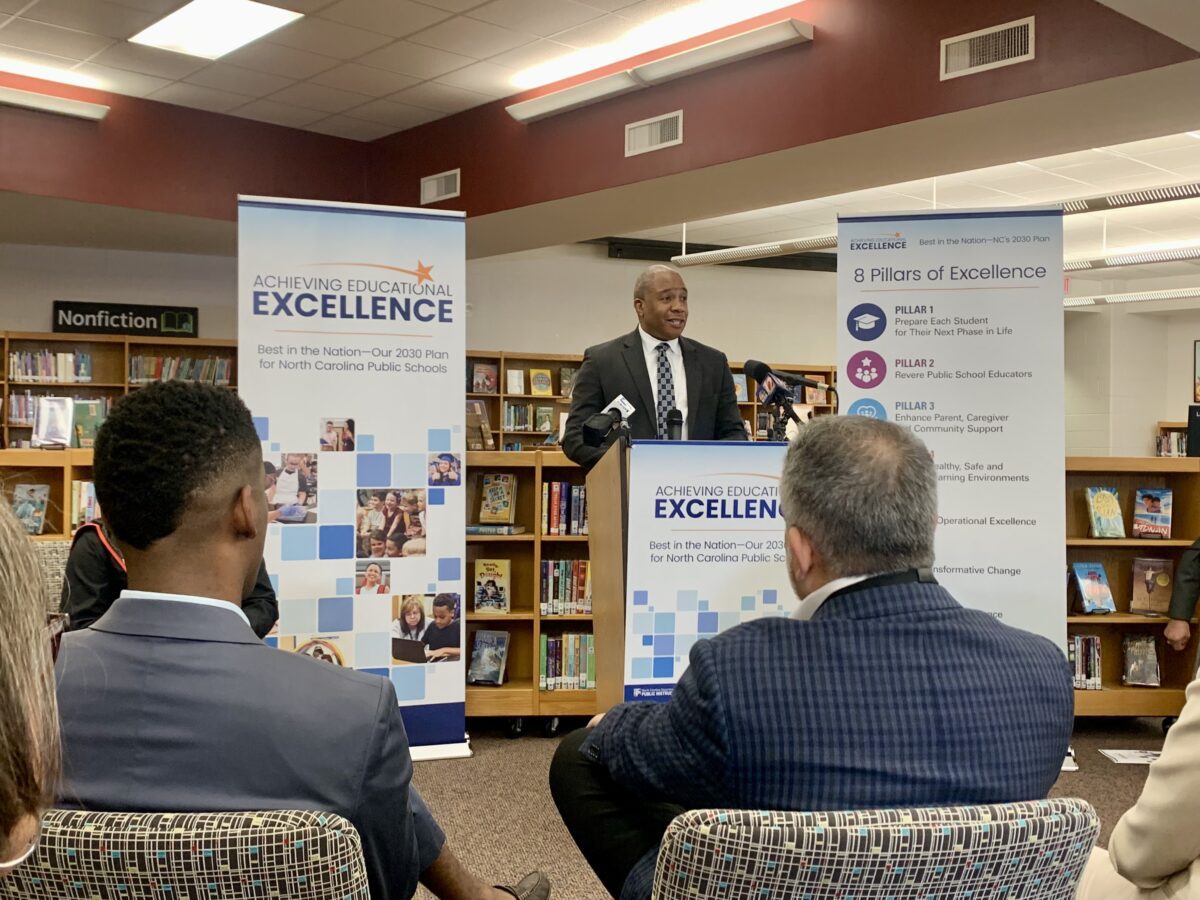
The Department of Public Instruction and the State Board of Education publicly presented their strategic plan to make North Carolina public schools the “best in the nation” on Wednesday at two media events. Educators, family members, and other public school stakeholders will have a chance to interact with DPI and the Board at public events in all of the state’s regions in the coming weeks.
The five-year plan’s goals are based on data and feedback State Superintendent Maurice “Mo” Green received while hosting listening sessions throughout the state. DPI’s events Wednesday were at two middle schools in Wake County — Centennial Campus Magnet Middle School and Neuse River Middle School — to showcase their educators and their innovation.
![]() Sign up for the EdDaily to start each weekday with the top education news.
Sign up for the EdDaily to start each weekday with the top education news.
Robert Taylor, superintendent of Wake County Public School System, spoke to the vision that the plan has for public schools across the state.
“It talks about what we want schools to be. We are something now, but we know that as we move into the future, we are going to have to transform,” Taylor said. “His strategic plan speaks to the heart of what that transformation is about. The plan also provides guidance to support this transformation. In other words, the necessary support and the stakeholders that we want to be involved in this work.”
Jill Camnitz, a member of the Board who sat on the strategic planning committee, said this was the first joint initiative between the Board and DPI in years.
“The plan ensures that whether a student attends school in a coastal town, a small farming community, or one of our bustling cities, they will get the support they need and the excellence they deserve as we move forward. The Board is ready to remove barriers that hold our schools back,” Camnitz said.
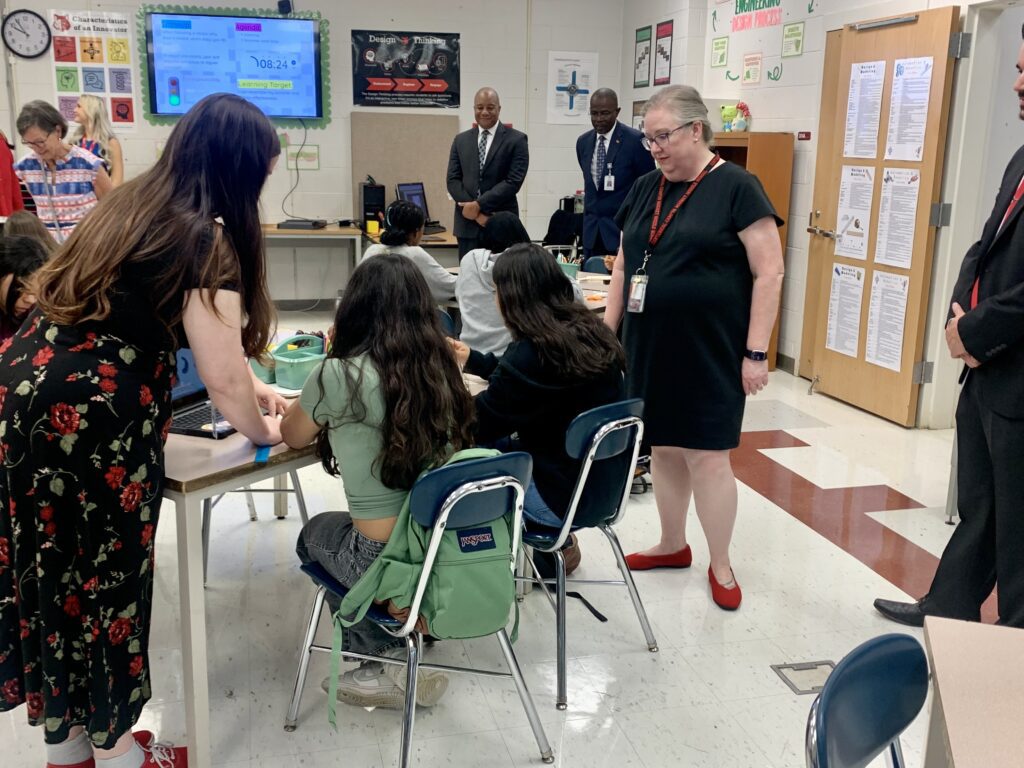
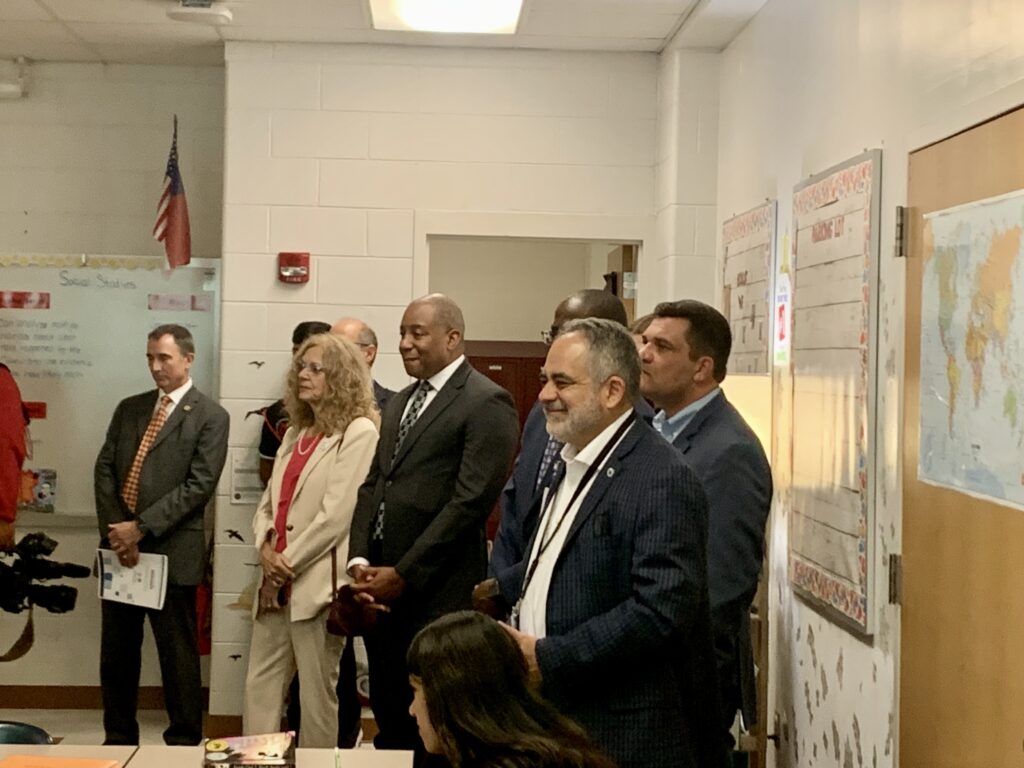
DPI identified several metrics they would follow to gauge the state’s collective improvement by 2030:
- 92% four-year graduation rate (currently 86.9%),
- ACT composite score of 20 (currently 18.5),
- 30% Advanced Placement participation among 10th-12th graders (currently 21.5%),
- 41% career and technical education participation among all K-12 students (currently 36.1%),
- 89% of school-aged children enrolled in public schools (currently about 84%),
- 41% dual-enrollment course participation (currently about 36%),
- Participation in character education,
- Lead the southeast in educator compensation, and
- National leadership in National Association for Educational Preparedness reading and math scores.
To reach these goals, the plan outlines action items that fall under eight pillars:
- Prepare Each Student for Their Next Phase in Life
- Revere Public School Educators
- Enhance Parent, Caregiver, and Community Support
- Ensure Healthy, Safe, and Secure Learning Environments
- Optimize Operational Excellence
- Lead Transformative Change
- Celebrate the Excellence in Public Education
- Galvanize Champions to Fully invest in and Support Public Education
In his remarks, Green gave examples of initiatives that will be a part of the plan. Some of which are already underway:
- A $25 million Golden LEAF Foundation investment into mathematics instruction in rural middle schools
- NC College Connect, a program that offers direct admission for to certain postsecondary institutions
- More mental health supports coupled with Youth Mental Health First Aid training,
- A statewide campaign to read 10 million books annually, and
- Development of an endowment to provide two years of tuition-free postsecondary education
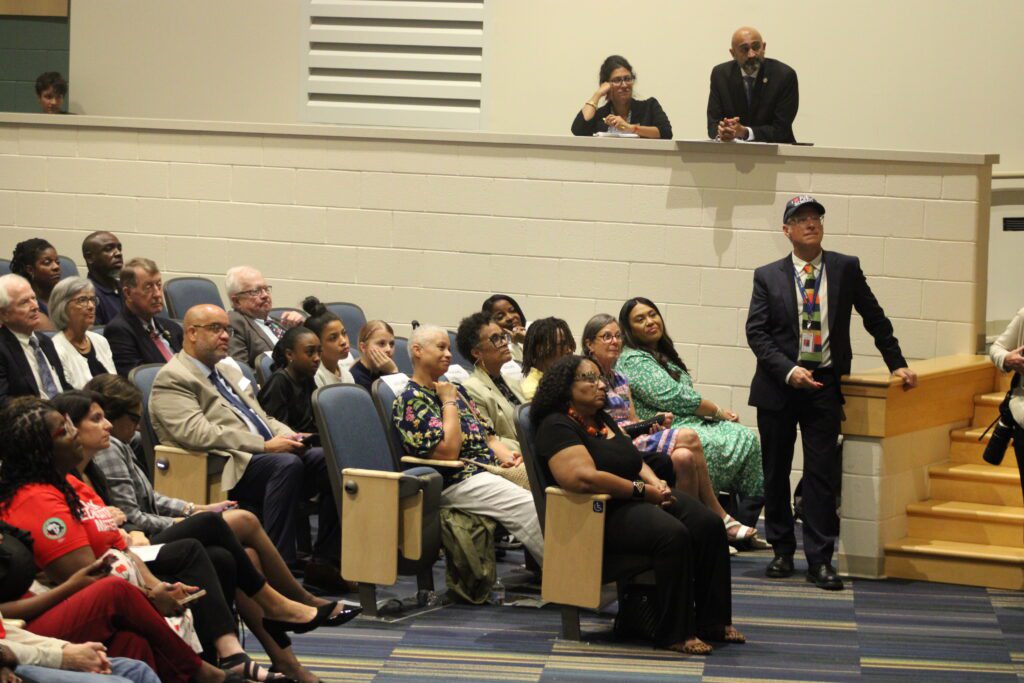
Green said that DPI may need support from educators, parents, the community, and the General Assembly as the plan progresses.
“Certainly, we will need strategic financial investments to make this happen, to support our schools and our teachers,” Green said. “But I submit to you today that we already have a lot of the things we need to make this plan successful. We have talented educators, engaged communities, many successful initiatives, and an innovative spirit.”
In a press release, Gov. Josh Stein expressed support for the initiative.
“North Carolina public schools open doors of opportunity for 1.5 million students,” said Stein. “This strategic plan sets a bold and ambitious vision for our schools to be the very best in the nation. It builds upon our successes and reimagines a system where every kid is prepared for success. It will take all of us to work together to deliver on our state’s and our students’ potential.”
Anyone who is interested in keeping up with DPI’s progress and volunteering with the plan’s implementation can follow this link.
Recommended reading


